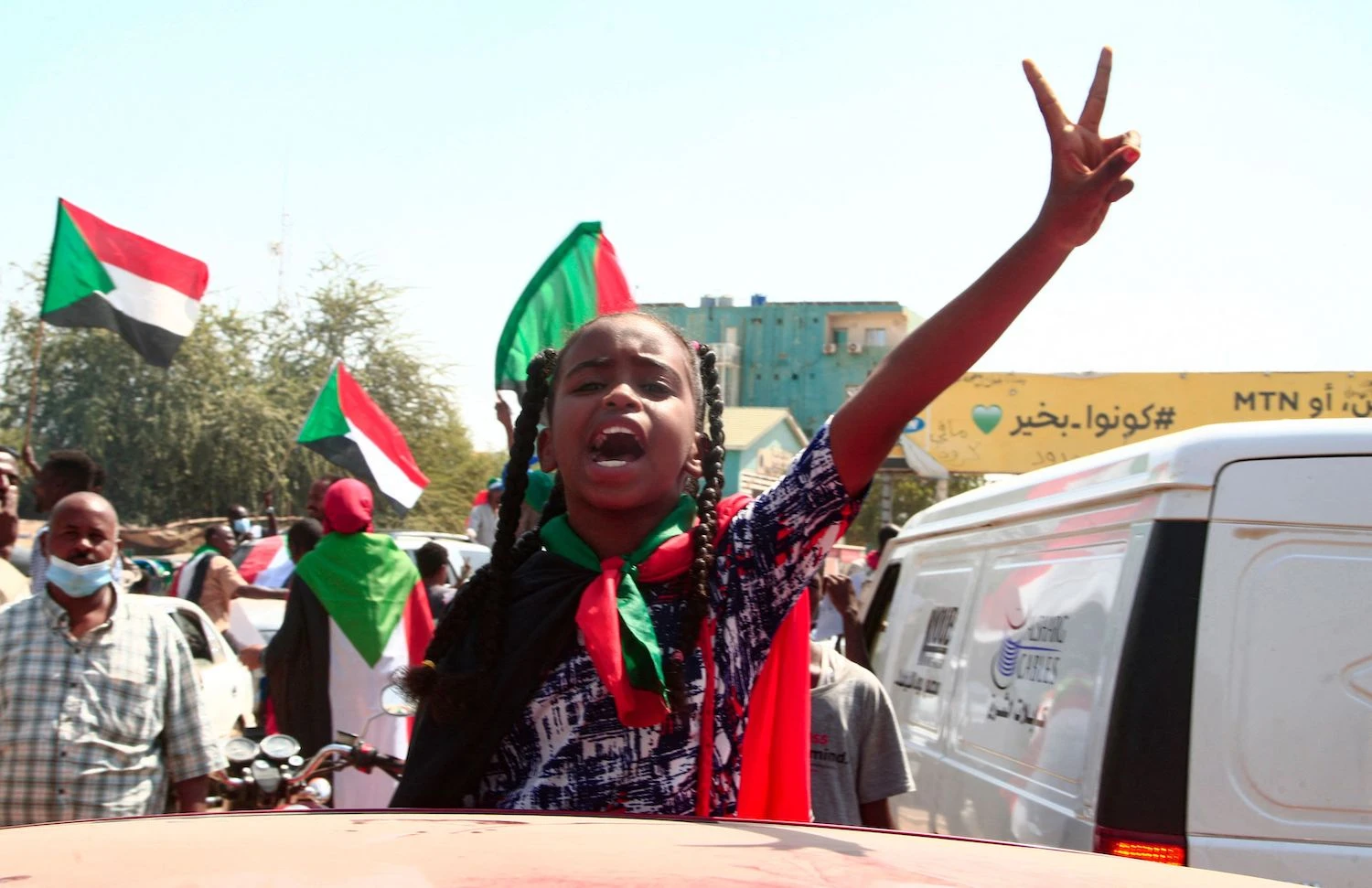The first anniversary of Sudan’s latest military coup has been marked by protests in the capital city of Khartoum, as well as Port Sudan and South Kordofan. On October 26th, the protestors’ call for a civilian-led government on the streets was met with tear gas from the state’s paramilitary: the Rapid Support Forces (RSF). The Sudan Central Doctors Committee confirmed at least one casualty in Omdurman. This was the latest protestor death of 118 over the last year—military crackdowns have continued to suppress pro-democracy marches since the coup last year. The cornerstones of democracy continue to crumble in Sudan through a combination of military rule, constitutional dereliction, and internet prohibition. With a story of power, promises, and follow-through to be unraveled, we can inquire whether democracy ever stood a chance.
Not much novelty exists with Sudan’s current authoritarian crisis. The de facto head of state Abdel Fattah al-Burhan follows the 30-year reign of President Omar Hassan Ahmad al-Bashir. Al-Bashir’s own rule began in 1989; he led a military overthrow of the democratically elected government. The former president was in turn ousted by military forces in 2018 after years of facing ICC lawsuits for genocide and war crimes in Darfur. He was claimed to have organized attacks on 2,450,000 civilians under the guise of ‘counterinsurgency strategy’. With abundant evidence but failure to appear in court, the overthrow of al-Bashir was warranted. Months of protests culminated in al-Bashir’s ousting, but it was coupled with a 3-month curfew, internet outages, and dissolvement of many government bodies.
The transitional government that succeeded al-Bashir is where we observe the continuity of democratic erosion. August 2019 marked the formal signing of a provisional constitution to shift Sudan towards a civilian-led democracy. The Transitional Military Council (of RSF) and Forces of Freedom and Change (FFC) joined forces to assemble the Sovereignty Council—a collective head of state comprising civilian and military leaders.
The constitution was promising. [10.c] explained the chair of the Sovereignty Council was to be an RSF military representative for only the first 21 months, and then a civilian representative for the next 18 until the 2022 democratic election. [23.a] established plans for a 300-member Transitional Legislative Council of elected officials to be formed within 90 days of signing. The preamble itself amplified sentiments of Sudanese self-determinism, political pluralism, and upholding of human rights. By October 25th, 2021—the council’s chair was still a military general, the legislature was nonexistent, and constitutionally-protected human rights had been violated by the same junta that promised to uphold them. The transitional government fundamentally failed to deliver on many constitutional promises by the time it was dissolved.
October 25th was in fact the day Abdel Fattah al-Burhan led Sudan to its current political state. Al-Burhan declared a state of emergency, forced the prime minister into house arrest, and dissolved the sovereignty council. Though Prime Minister Hamdok was reinstated a few months later when he agreed to share power with the army; he later resigned after thousands protested his questionable deal, saying the country was at a dangerous turning point. Some CNN political sources in Sudan attest that the RSF pressured his departure.
Sudanese citizens have been met with lies and violence as they continue to rally for civil leadership. A few months before the 1st-anniversary march, al-Burhan stated the military would soon step back from politics, though a large civilian resistance remained skeptical. With plans for a “Security and Defense Council” of RSF officials, al-Burhan’s promise for civil leadership upholds military command on Sudan’s central banking and foreign policy. Grass-roots organizations continue fighting against the RSF junta’s suppression, though footage of abuse against protestors continues to stockpile on Whatsapp and Facebook.
As much as some media has been able to reach a wider audience, internet accessibility is consistently cut out whenever protests are in the planning stage. Hours before the recent October protest, web connectivity dropped nationwide. While this didn’t stop thousands of protestors from taking to the streets, free media is a democratizing force that the RSF keeps suspending. A regime that disrupts the internet during every period of civil unrest is not a regime that wants to compromise. Accordingly, a government that allows military brutality against nonviolent civilians will not peacefully relinquish power.
While UN experts have called for a mandate to address human rights violations and create a third-party mechanism for democratic transition, Islamist factions have been chanting against intervention for months. UN representative Volker Perthes was told to “get out” of Khartoum, while many protestors gathered around the UN mission’s HQ. One primary fear was the deal’s potential exclusivity, where only a “dual agreement” between FFC and the RSF would be crafted.
As of December 5th, 2022, an initial deal has been signed by al-Burhan, and leaders of multiple civilian factions, including the FFC which was ousted from the government by al-Burhan’s coup. The UN has taken credit for efforts leading to this deal, and many capitalist countries of the West and the Gulf praise its outcome, though protestors on the ground remain skeptical. The deal’s first draft promises the new “Security and Defense Council” al-Burhan conjured up in May—placing no expectations for military reform or redistribution of jurisdiction. While an FFC spokesperson announced the deal’s goals were full civilian leadership, free elections, and wide political participation, many Sudanese people are not hopeful. A common sentiment among the opposition is that Sudan will repeat the same cycle as long as the RSF is not held accountable for its multiple massacres. With the agreement only in its early stages, and with the exact same parties involved as last time, who’s to say Sudan won’t witness the same power vacuum that allowed last year’s coup?



Leave a Reply
You must be logged in to post a comment.